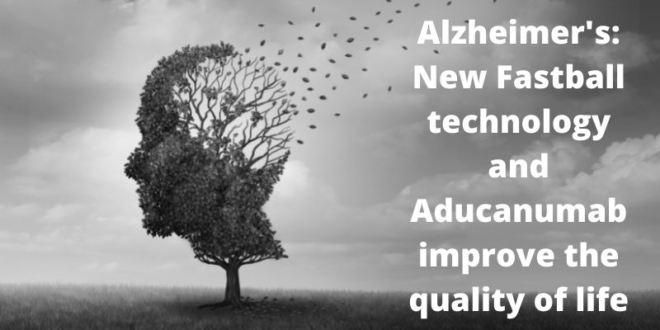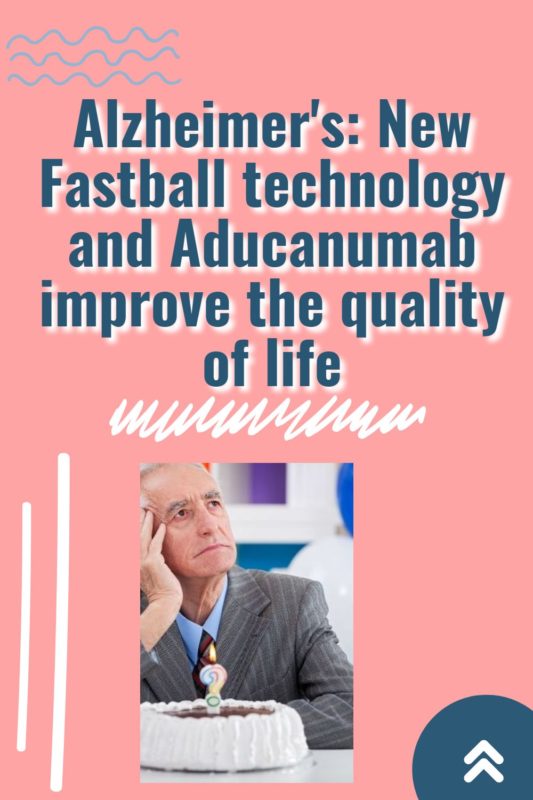My mother died from Alzheimer’s
It was tough to see the woman who raised you
- how asked the same question or told the same sentence over and over again
- how didn’t recognize members from our family or me sometimes
- how changed the behavior every hour and became aggressive from time to time
In the end, we couldn’t leave her alone any minute because she didn’t know what she had done at all.
We couldn’t help her a lot with all medicaments and care because doctors discover the illness late.
Pioneering EEG test could dramatically increase early diagnosis of Alzheimer’s
When I read that the Pioneering EEG test named ‘Fastball EEG’ could dramatically increase early diagnosis of Alzheimer’s and help people who helplessly watch their relatives become other persons, I decided to share the news with you. So please share this and help as many people as you can to lower their problems with their supervision and care of their relatives and friends.
The biggest problem with helping people with Alzheimer’s is that the illness nowadays with the existing tests is diagnosed too late.
New research on this, led by psychologists at the University of Bath and published in the journal Brain, on 09/20/2021 shows that the technique with Fastball is highly effective at the earlier stages of the illness. The fastball technique is entirely passive. It picks up small, subtle brain waves that occur when a person remembers an image. Fastball doesn’t require comprehension of the task or behavioral memory response.
According to the team behind the Fastball technique, the approach is portable, cheap, and relies on the technology available in hospitals.
Early diagnosis of Alzheimer’s disease enables early treatment and improved quality of life and independence in patients with Alzheimer’s.
Lead researcher and cognitive neuroscientist, Dr. George Stothart of the Department of Psychology at the University of Bath, explained:
“Fastball offers a genuinely novel way of measuring how our brain is functioning. The person being assessed doesn’t need to understand the test or even respond; they watch a screen of flashing images. By manipulating the images that appear, we can learn an enormous amount about what their brain is or cannot do.
The tests we currently use to diagnose Alzheimer’s miss the first 20 years of the disease, which means we are missing huge opportunities to help people. For decades now, we have had tools in scientific research that have been able to probe how the brain is working, but we have never leaped a viable clinical tool for the objective assessment of cognition. We hope that Fastball may be that leap.”
On the other side, scientists are searching for new treatments for Alzheimer’s all the time. They are looking for a treatment that will slow the memory loss’ progress and improve other symptoms.
FDA approves Aducanumab for Treatment of Alzheimer’s Disease
On 06/07/2021, the FDA approved Aducanumab for patients with mild Alzheimer’s disease (early stage) using the Accelerated Approval pathway. Aducanumab is the first drug therapy approved for Alzheimer’s since 2003.
It is an immunotherapy or human antibody that targets the protein beta-amyloid and helps reduce amyloid plaques, which are brain lesions associated with Alzheimer’s.
Aducanumab can not restore lost memories or cognitive function.
If you are interested in learning more about the treatment with Aducanumab for yourself or a loved one, you need a conversation with your health care provider.
Desperate to help the loved one, many people try supplements and home remedies. In his book, Encyclopedia of Home Remedies for Better Life dr Dr. Izharul Hasan shared some home remedies that can improve the quality of life.
I was with my mother to the end, trying to help her in every way. The doctors diagnosed the illness too late, and we couldn’t slow the progress with all our care and drugs.
You or your relatives and friend don’t need to face this torture. Visit your doctor as soon as you experience some of the Alzheimer’s disease symptoms. You can find them here








